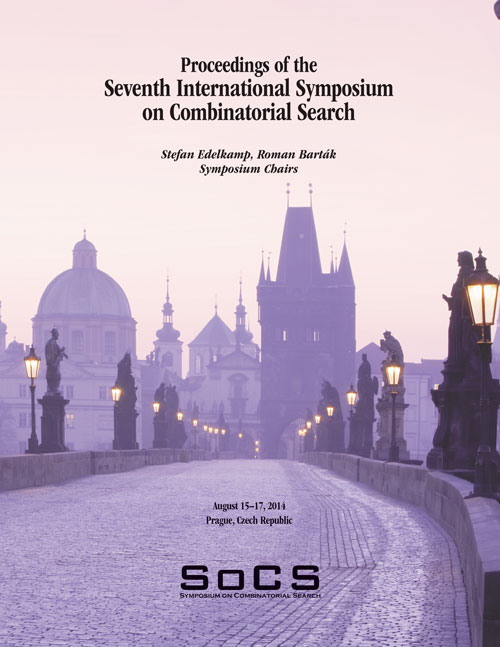Speedy Versus Greedy Search
DOI:
https://doi.org/10.1609/socs.v5i1.18320Keywords:
artificial intelligence, search, heuristic searchAbstract
In work on satisficing search, there has been substantial attention devoted to how to solve problems associated with local minima or plateaus in the heuristic function. One technique that has been shown to be quite promising is using an alternative heuristic function that does not estimate cost-to-go, but rather estimates distance-to-go. Empirical results generally favor using the distance-to-go heuristic over the cost-to-go heuristic, but there is currently little beyond intuition to explain the difference. We begin by empirically showing that the success of the distance-to-go heuristic appears related to its having smaller local minima. We then discuss a reasonable theoretical model of heuristics and show that, under this model, the expected size of local minima is higher for a cost- to-go heuristic than a distance-to-go heuristic, offering a possible explanation as to why distance-to-go heuristics tend to outperform cost-to-go heuristics.

